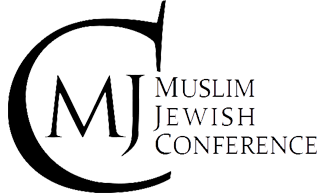Fifth Annual MJC (7th-14th August 2014) – Vienna, Austria
Vienna is the capital and largest city of Austria, with a population of approximately 1.8 million. It is the cultural, economic and political centre of Austria.
The city’s roots lie in early Celtic and Roman settlements that transformed into a Medieval and Baroque city, the capital of the Austro-Hungarian Empire. It is well known for having played an essential role as a leading European music centre, from the great age of Viennese Classicism through the early part of the 20th century. The historic centre of Vienna is rich in architectural ensembles, including Baroque castles and gardens, and the late-19th-century Ringstrasse lined with grand buildings, monuments and parks.
Often dubbed as one of the most livable cities in the world, Vienna is home to significant Muslim and Jewish populations today. As of 2014, 3.6% of Viennese population was Muslim, mostly of Turkish and Bosnian origins. Islam is the second most widely practiced religion in the country.
The history of the Jews in Vienna began centuries ago. At the end of the 19th century and the start of the 20th century, Vienna was one of the most prominent centres of Jewish culture in Europe. Today, around 15,000 Jews live in Vienna.
Committee Overview
- Conflict Transformation | Chaired by Rafael Tyszblat
The 17 participants of the Conflict Transformation committee engaged in a very rich mix of conflict transformation skill-building activities and constructive dialogue. They explored the roots of conflict and analyzed the mechanisms of violent escalation from interpersonal to international conflict, from family mediation to intercultural dialogue on the war between Hamas and the State of Israel.
- Gender & Religion | Chaired by Irtefa Binte-Farid, Oliver Braunschweig
The goals of the Gender and Religion committee were to break down definitions of gender and the creation of the male and the female; to help participants differentiate between the opinion of an individual and the respect due to each person, irrespective of their opinions; and to create an understanding of established gender roles within the faith communities, and that constructive dialogue includes the perception of the person talked to.
- Power & religion | Chaired by Yunus Hentschel, Alexander Marcus
The Power & Religion committee gave participants a chance to discuss Jewish and
Islamic law, sacred texts and interpretive authority, tensions between religion and the state, and violent conflicts around the world. From the onset, participants had the opportunity to ask each other difficult and complex questions, such as the significance of the State of Israel in the lives of Jewish participants, and the compatibility of secularism and Islam. A common theme that arose during conversations was the high degree of commonality between Muslim and Jewish traditions, and the shared roots of their religious discourse and differences.
- Historical Narratives & Identity | Chaired by Ayyaz Ahmad, Carla Habif
The Historical Narratives and Identity committee began the week by unpacking identity into the issues of personal and collective identity. The participants then discussed the conflict between these two. They discussed how one could often be robbed of their personal identity if it did not fall in line with the collective’s criteria.The multiplicity of historical narratives and the steps of unpacking historical narratives to engage in a meaningful conversation with the other side were also discussed. The concept of power was introduced, and connected with the issues of historical narratives an identity. It was discussed that in time by personal identities form a collective identity, and a few people become the power centers of a community.
- Collective Memory | Chaired by Daniel J. Gerstle. Hikmet Karcic
The Collective Memory committee focused on memory and remembrance in post-conflict societies. First, we presented a brief introduction on the definition of collective memory and the tools used in post-conflict societies. The committee then used several case studies to give a focused overview on collective memory in Bosnia and Herzegovina, Azerbaijan, Armenia and Somalia. The participants were asked to present on collective memories within their own families which led us to talk also about Pakistan, Morocco, Israel, Germany, and the United States. One of the last sessions was related to the Palestine-Israel conflict, where participants discussed how to analyze media reports in order to get the whole story. As a finale, we shared songs from the Balkans demonstrating how some music was used to remember unity before the war, others to remember shared trauma, and still others to reunify.
- Arts & Culture | Chaired by Aziz Sohail, Jacob Kohn, Shaina Hirsch
The Art and Culture committee took a hands-on approach to exploring how the arts has the potential to build bridges across communities and shatter preconceived notions about the “other”. We analyzed case studies related to identity and self-expression, unpacking how cultural diplomacy has been used to channel the spread of cultures and traditions across religious, ethnic, social, and political boundaries.
- Islamophobia And Antisemitism in The Media | Chaired by Denisa Nestakova, Maryam M. Ahmed, Rachel Suranyi
The Islamophobia and anti-Semitism in the Media committee introduced elements and
forms of anti-Semitism and Islamophobia, the impact they have on one‘s identity, life, point of view on “the other“; identified the stereotypes and prejudices behind otherising; discussed how current events are shown in the media; and introduced alternative media – both anti-Semitic/Islamophobic and the “loving“ ones. Other topics of discussion included conflicts and reasons of giving more attention to particular conflicts, such as the Israel/Palestine one; and the Holocaust.
